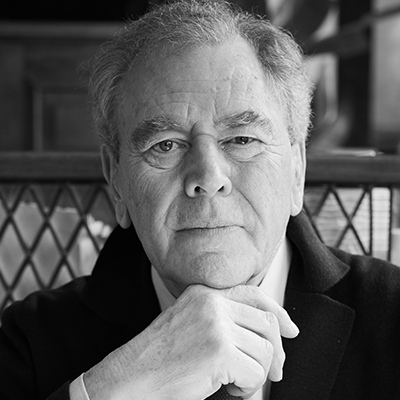
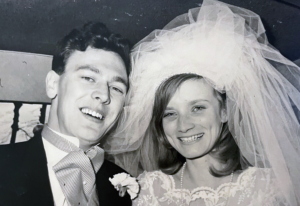
David Bickford was born on 28 July 1940 in Dorset, England, during a WW2 air raid. His mother, a remarkable figure, raced Bentley cars at Brooklands, the then home of British Motor Racing. Meanwhile, his father served as a Royal Air Force intelligence officer, playing a crucial role in handling Ultra and cracking the Japanese Naval 24 Code.
After the war, David’s father co-founded British South American Airways with Don Bennet, the wartime Pathfinder Commander. As a result, David’s holidays from Prep school were filled with exciting adventures, including two-day flights to South America where he explored the jungles of Brazil and the breathtaking landscapes of Chile.
Later, his father became a General Manager for BOAC (now British Airways) in India and East Africa, exposing David to the mysteries of India and the vast plains of East Africa.
Upon leaving Downside School at the age of 17, David embarked on his journey to become a solicitor. Despite struggling in Mathematics, his involvement in rugby and boxing helped compensate for the academic challenge. He immediately began his legal studies at the College of Law in London after joining articles, as he was inspired by his uncle’s relentless defense of Ruth Ellis and sought to rectify any injustices in the justice system.
After qualifying, David started his career as an assistant solicitor at J J Newcombe in Okehampton, Devon. There, he honed his skills as a defense lawyer, navigating the sometimes unwavering hearts of local magistrates and county court judges with both resilience and kindness.
On 24 April 1965, David married his soulmate Cary, and together they have been blessed with three sons. David’s journey from a Spy Chief to an accomplished author is a testament to his versatile and intriguing life experiences.
Uninterested in the predictable path from partner to consultant to retiree in private practice, David sought a different direction. He took on a government contract as the Legal Adviser for the Turks and Caicos Islands Government. In this role, David collaborated with forward-thinking Government Ministers to draft legislation that supported the development of tourism infrastructure and established the islands as an offshore finance center.
Through negotiations with the US Defense Department, David successfully facilitated the closure of a dangerous sand airstrip and secured aviation access to the US Air Base on the islands. While oil exploration efforts yielded no significant results, land development contracts, including a partnership with Barclays Bank to provide favorable building mortgages for islanders, led to the emergence of new buildings and tourist hotels. The enactment of Fisheries legislation, inspired by a visit from the Audubon Society, played a crucial role in preserving the renowned diving and fishing spots in the Turks and Caicos Islands.
David’s first book, “Land Dealings Simplified in the Turks and Caicos Islands,” was a significant milestone as it became the first publication in the islands. Notably, it was hand-printed by the government printers, marking a unique achievement.
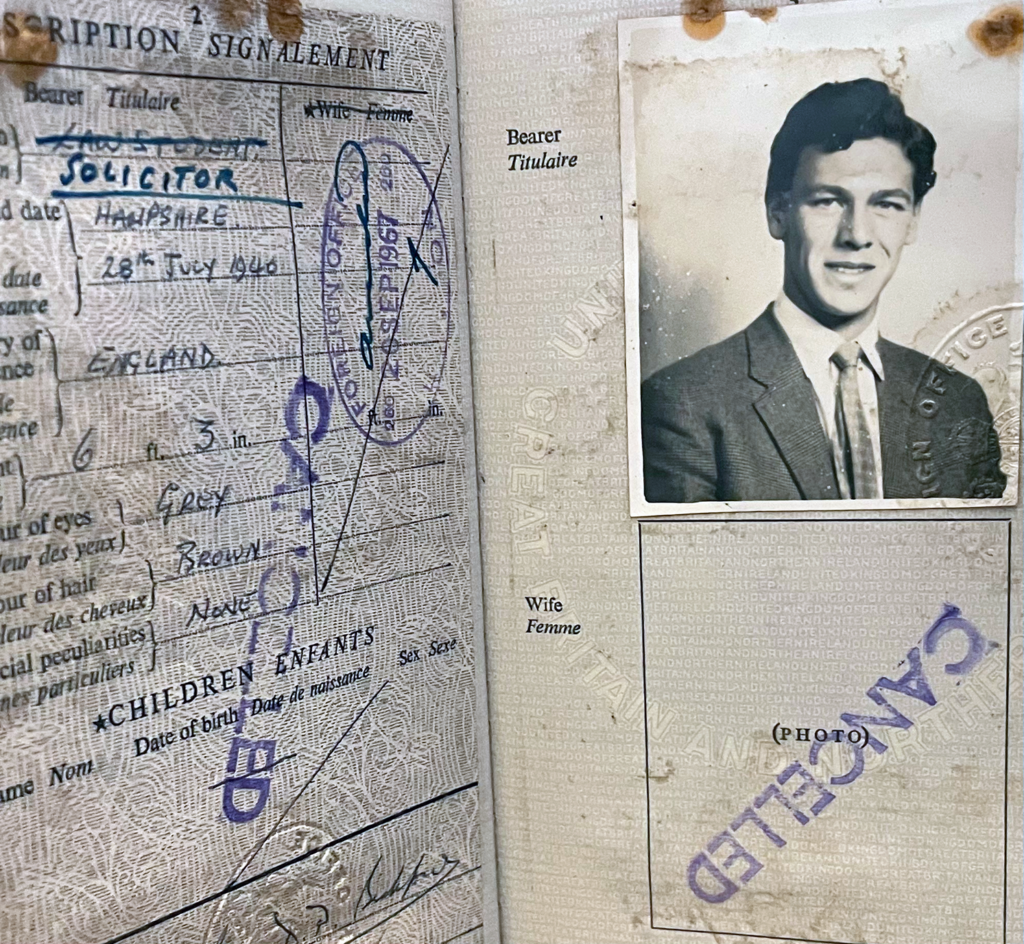
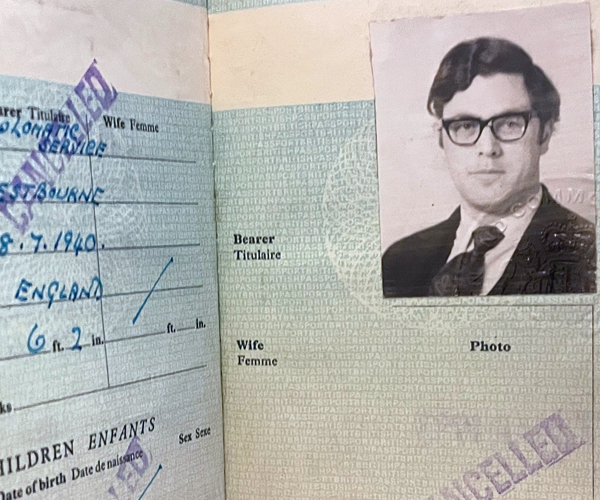
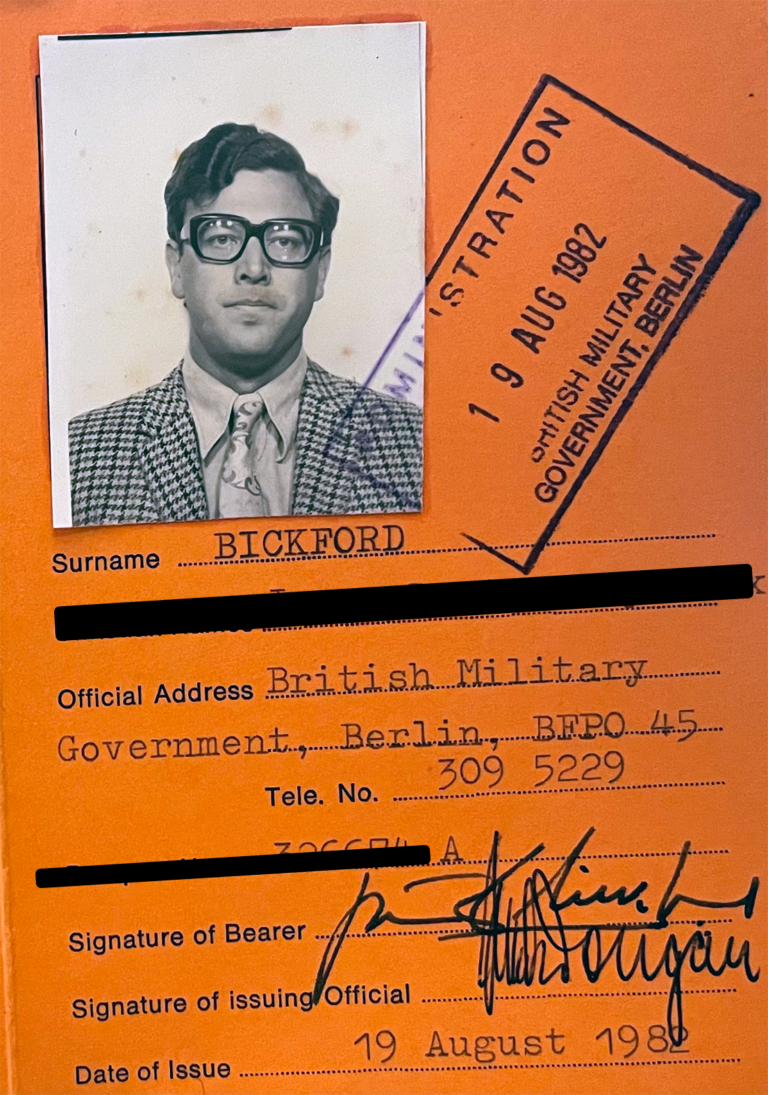
At the end of his contract, David was invited to apply to the Foreign and Commonwealth Office as Assistant Legal Adviser. He worked on the legal issues concerning the UK Dependent Territories, notably the short-lived Seychelles Independence Constitution. The day the Independence was celebrated in Westminster Abbey and as the trumpets sounded, word was passed to him that there had been a coup -there was now a new president. So, David walked into the Abbey with one president and out with another.
At this time, he was introduced to the world of international human rights by assisting in the Irish Human Rights cases.
He was then posted by the Foreign and Commonwealth Office to Berlin during the Cold War for a three-year tour as Legal Adviser to the British Military Government maintaining the Quadripartite and post war agreements. The Soviet invasion of Afghanistan raised tensions with the Allies and the Soviets frequently caused trouble with the air, rail and road communications guaranteed by these agreements and which were vital to sustaining the population of West Berlin. Rudolf Hess, housed in Spandau Prison, and hated by the Soviets also came within David’s brief
Returning to London at the end of the tour, he was promoted to Legal Counsellor. He developed a niche in Defence issues, attending NATO and the United Nations. He was UK Legal Adviser to the UK Space delegation including the International Space Station Agreement on the design, development, operation and utilization of the Space Station.He chaired the 1985 INMARSAT General Assembly which approved earth stations for satellite communications and was UK Legal Adviser to INTELSAT. Defence issues extended to the threat posed to the USA by narcotics trafficking and criminal moneylaundering through the British Caribbean Territories. He worked closely with the US Department of Justice negotiating the first British Mutual Legal Assistance Treaty to enable co-operation to tackle these problems. A sting operation secretly co-ordinated with the FBI successfully trapped three senior British territory Government Ministers selling drugs in Miami.
Scheduled to go to the United Nations as the UK Legal Adviser and at the same time offered the job of Governor of the Turks and Caicos Islands David was also asked if he would take over as Legal Director of the Security and Intelligence Agencies, MI5 and MI6 which he accepted.
The European Court on Human Rights was considering the Leander case which had serious implications for the Agencies which at that time acted under Royal Prerogative. He was instrumental in introducing the Security Service Act 1989, the Official Secrets Act 1989 and the Intelligence Services Act 1994. This base plate legislation allowed David to introduce procedures to convert intelligence into evidence whist preserving the rights of the accused to a fair trial. This required the officers operating in dangerous circumstances to make a log of their activities for court proceedings. They were responsible for many successful prosecutions of suspected terrorists. These procedures were approved by Sir Richard Scott in his Scott Report of 1992. David introduced regulations for the running and oversight of agents so as to ensure compliance with the agencies’ legislation.
As part of opening up the Agencies David was appointed to liaise with the Press. David says of his time dealing with the Press and Media that he met with tough questioning but always fair practice. He also set up liaison with the Legal Director of Liberty, the now Baroness Chakrabarti whose advice was invaluable, particularly on the balance of rights between the Agencies and the public.
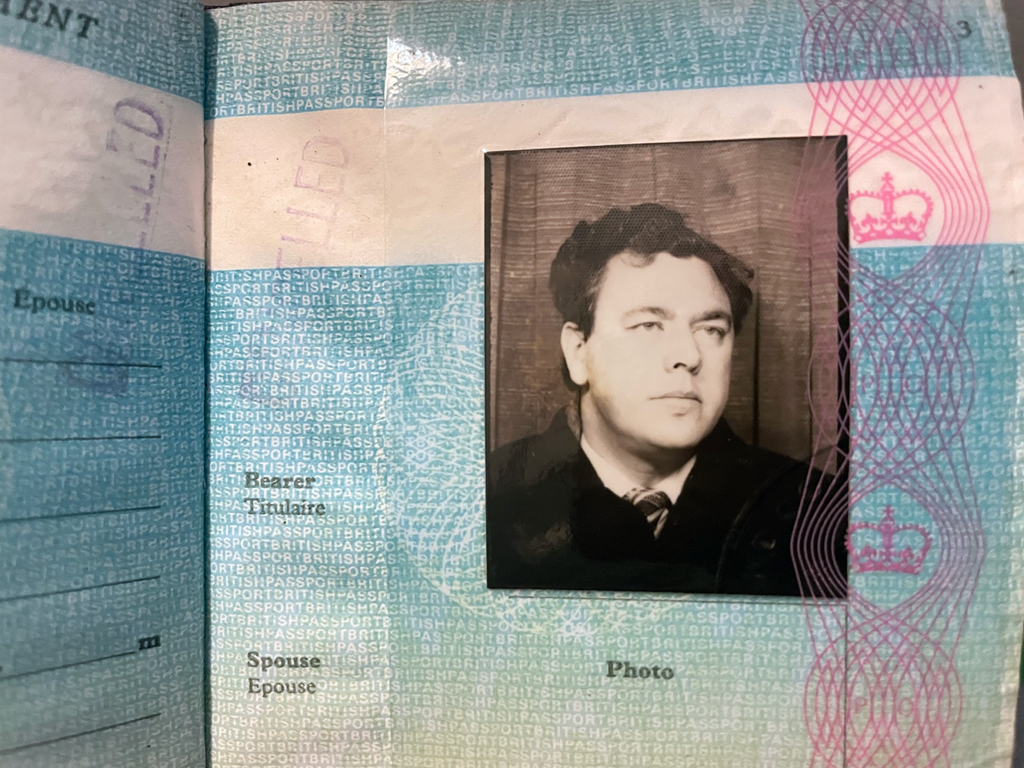

David had been closely involved in the USA and was invited to be Visiting Professor at Cleveland State University whilst looking into future legal developments to combat terrorism and moneylaundering. There he taught mature students International Human Rights as well as Counter Terrorism. Lively and bright, they kept him on his toes. This resulted in a realisation that these issues needed a wider audience. He was first invited to give evidence on future responses to terrorism to the US Foreign Relations Committee in Washington and became an honorary member of the American Bar Association, contributing to many of their Conferences. He subsequently gave evidence to the UK Parliament Select Committee and the Committee of Privy Counsellors making recommendations for greater oversight of the Agencies, a public face for the Directors of the Agencies and to allow the Agencies wider powers to tackle organised crime, including terrorism. He was surprised to find that the 15 year old Prince William had attended the hearing – no doubt a disappointing episode for someone expecting to see James Bond. At the Cambridge Symposium on Economic Crime David was the first to attack the UK Dependent Territory tax havens for aiding crime which resulted in greater openness and co-operation with third states.
He is the author of many papers including State Secrecy and Transparency; Law Enforcement and Intelligence in a New Era; The Hutton Enquiry, The case for Select Committee Oversight; The War on Terrorism, Role of the International Community;
He spoke to the Cambridge Economic Crime Symposium advocating Judicial oversight of intrusive surveillance by the Intelligence Agencies. He was then invited to speak to the EU Parliament Libe Committee on Democratic Oversight of Intelligence Services in the European Union where he advocated the French system of examining judges to oversee the work of the Agencies. He was subsequently invited to give evidence to the UK Commons Select Committee on Covert Surveillance. David was invited by the United Nations to deliver a series of lectures.
He was a consultant to the Commonwealth Institute, the Cayman Islands, Mauritius and other offshore finance centres on countering moneylaundering. At this time, he was introduced to computer software to track suspicious transactions in financial institutions based on the Dutch system. He believes that further development in this area, particularly by the use of Artificial Intelligence, will greatly reduce the problems, both reliability and administrative, of Know Your Customer.
He has given many interviews to the Press and TV. He was the first intelligence officer to appear on BBC World News Hard Talk. This first was also followed by interviews in amongst others the Night and Day Sunday Times magazine and Cosmopolitan Magazine, thus opening the way for a more public face for senior Intelligence officers.
David and Cary were travelling to London on a long-distance flight from a speaking conference in San Francisco. They were talking about their travels and their experiences and saying how they sounded like a thriller. So was born The Face of Tomorrow which became a best seller in the UK for Borders Books and is seen as a thriller that predicted the Arab Spring. This led to a film option in the States. He wrote two more scripts, one optioned by a production company in London for the BBC.
Katya is one of a series of five.
